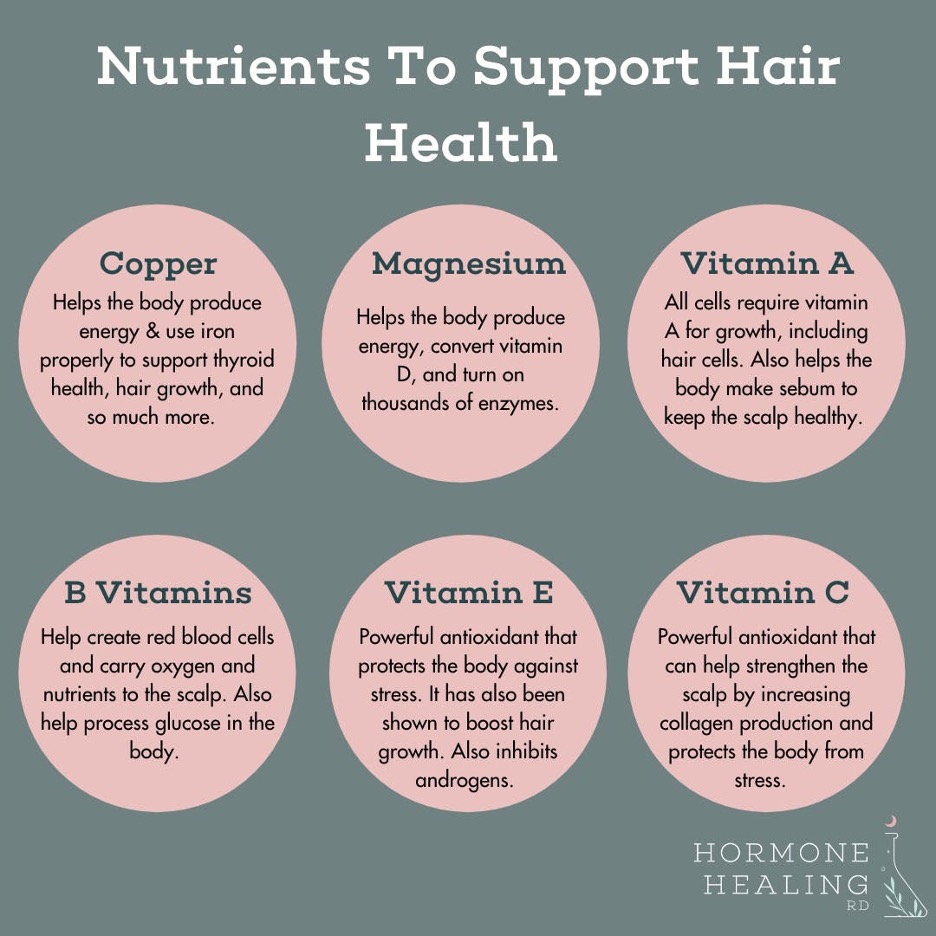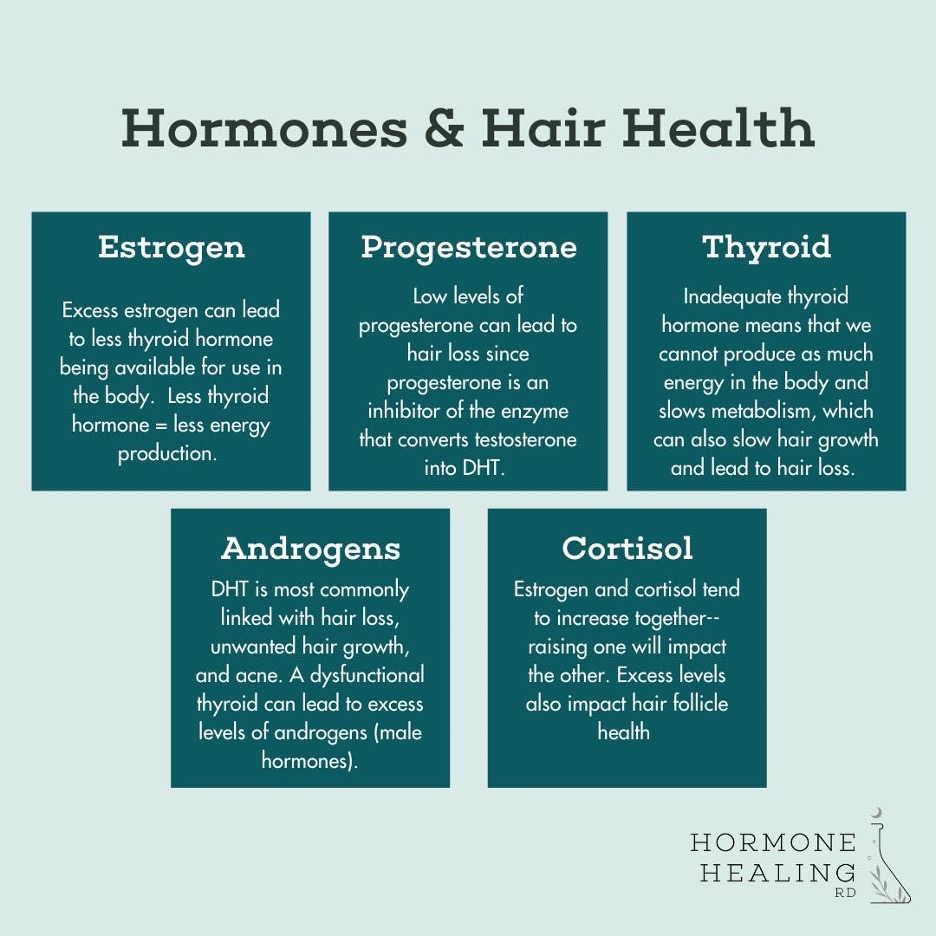As with most things related to women’s health, the topic of hair loss is complicated. Rarely is there a sole reason for hair loss. For example, hypothyroidism and inadequate thyroid hormone levels are among the most common causes of hair loss. Does the underlying question then become what is causing the hypothyroidism? More often than not, it is not merely one cause. There are a few things to consider, such as the individual’s nutrition, lifestyle, and stress level. Are they eating enough? Are they consuming enough nutrient-dense foods? Do they have a nutrient deficiency that isn’t being met by their current diet? How stressed are they? Cortisol, a stress hormone, directly blocks the conversion of thyroid hormone. When it comes to supporting healthy hair and healing hair loss, we have to consider several different areas.
Energy Intake and Hair Loss
Hair loss is scary. It can take a severe toll on your self-confidence, especially for women. I dealt with hair loss when I first got off the pill during different stressful periods throughout my life. I always wanted to blame a hormone, fixated on a supplement or medication I should be taking, etc. However, I wasn’t focusing on the most basic, foundational concern for regenerating and renewing cell—energy. I would ask myself, is my body getting enough energy? Is my body using that energy properly? This is one of the most overlooked areas of concern when it comes to hair loss. Those are the first questions I think should be asked when it comes to hair loss. What do I mean by energy? Energy from our food in the form of calories: protein, carbs, and fats. So, how to know if you’re eating enough?
How do you know if your metabolism is in a good place?
Which Nutrients You Should Focus on For Hair Health
I want to highlight six essential nutrients for hair health: copper, magnesium, vitamin A, B vitamins, Vitamin E, and vitamin C. Each of these nutrients plays a vital role in supporting the health of your hair.

How Do Hormones Impact Hair Health?
As I mentioned, there is rarely one cause of hair loss. If you were to consider how different hormones impact our hair health, you could see just how complicated our hair’s growth or loss can be. Most often, hair loss is blamed on elevated DHT levels, which is a male hormone (androgen) known for leading to hair loss, unwanted hair growth, and acne. For some, this can be the case; however, research shows that when DHT is blocked, hair loss, and even more importantly, hair growth does not improve (Hair Like a Fox, by Danny Roddy, is a great book that goes into greater detail on this). For this reason, we have to look further than DHT and androgens. What typically causes those to be high? The answer—poor thyroid function. So, what leads to low thyroid function? Excess stress (cortisol) and estrogen, and inadequate progesterone. Is DHT the hormone we should focus on, or do we need to look more at estrogen and progesterone? I think progesterone is the most important hormone when it comes to hair health and reducing hair loss. Progesterone protects us from stress and naturally inhibits the alpha 5-alpha-reductase enzyme, which converts testosterone into DHT. Progesterone also supports thyroid function and our metabolism, which both impact hair health.
A question you may be asking yourself is, how can I make enough progesterone? You will have to ovulate, eat enough food, and have a healthy stress level. Here is where energy intake and nutrients come into play. While it is tempting to focus on specific hormone imbalances, the root of all these is metabolic health and the body’s nutrient status. The basics are not sexy, but they are necessary for supporting hair health and overall long-term health.

How to Support a Healthy Scalp for Hair Health
One often forgotten area of hair health and hair loss is our scalp. The health of our scalp has a significant impact on the hair follicle and hair growth/loss. Our hair starts growing at the bottom of our hair follicle. If we have too much build-up, poor circulation, or a lack of nutrients in general, it can lead to hair loss.
A well-rounded approach to hair health takes into consideration the health of your scalp. There are three important ways to have a healthy scalp:
Hair loss is complex. There is no single reason for hair loss. When it comes to healing hair loss and supporting hair health, we need to address our energy intake, nutrient intake, and hormone imbalances to take a well-rounded approach. I hope you found this information helpful! To get to the root of your hair loss, check out our Master Your Minerals course—in which you’ll learn how to interpret your own HTMA and build a hormone healing protocol based on your unique results.
